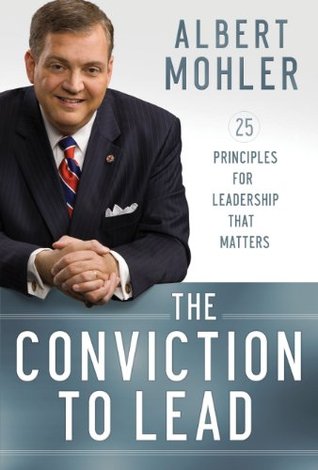More on this book
Community
Kindle Notes & Highlights
Read between
February 21 - March 5, 2020
Real leadership doesn’t happen until worldviews are changed and realigned.
leaders shape the way their followers see the world.
The leader must shape the way followers think about what is real, what is true, what is right, and what is important.
Leaders must be unquestionably committed to the truth, and they must lead their followers to do the same.
leaders must lead followers into a growing maturity that enables them to discern the true from the false.
leader must teach followers what is most important, most urgent, and most essential.
Ideas drive history, and ideas shape other ideas. That is why the reality of a worldview is so important. The effective leader changes the way followers think about the world. What could be more exhilarating than that?
Passionate Leaders Driven by Passionate Beliefs Draw Passionate Followers
Leaders need to possess and develop many qualities, but the one element that drives them to the front is passion.
Without it, nothing important happens.
Passion must arise out of conviction. It cannot come any other way.
Passion arises naturally or not at all. It happens when convictions come to life, and deep beliefs drive visions and plans. The passionate leader is driven by the knowledge that the right beliefs, aimed at the right opportunity, can lead to earth-shaking changes.
The most faithful and effective pastors are those who are driven by deep and energizing convictions.
Their preaching and teaching are fueled by their passionate beliefs and sense of calling.
passion arises out of beliefs.
For the Christian leader, those convictions must be drawn from the Bible and must take the shape of the gospel.
Passionate leaders attract and motivate passionate followers.
The passionate leader emphasizes morality and purpose.
The language of passion requires boldness.
Leadership Begins When You Learn to Think Like a Leader, and Leadership Is Not Achieved Until Followers Learn to Think as Well
Christian leaders.
lead out of authenticity and the open acknowledgment that we are doing what all leaders must do—face the facts, lean into the truth, apply the right principles, acknowledge the alternatives, and, finally, make the right decision. In other words, the leader leads by conviction.
The leader faces the facts, and this means that the facts must be determined and known. The leader must know the organization as it is, know its needs as they are, and face the world as it actually exists. The conscious denial of reality is a central danger of leadership, and the leader must defend against this temptation.
the leader’s disciplined posture is to lean into the truth and to be unafraid of it.
He demands that those around him tell him the truth, and he leads by being the truth teller in chief.
Christians believe that all truth is God’s truth and that truth is unitary and consistent.
The leader develops a disciplined mind, committed to Christian truth and guided by scriptural principles. The leader is committed to the development of a comprehensive worldview based in truth and to the consistent application of truth to decision making.
The leader serves the organization for the long term by constantly articulating the alternatives.
Given the situation, we could move in directions A, B, or C. The process of analysis and convictional thinking is what gives the leader the right answer, and the organization needs to understand how and why. The wise leader lays out the alternatives and then walks the organization through the process of understanding which decision or direction is best.
the leader has to make the right decision most of the time, even almost all the time, or the organization needs a new leader.
The most effective leaders make the right decisions over and over again and develop credibility even as they gain experience.
The buck stops at the leader’s desk, and that is why your name i...
This highlight has been truncated due to consecutive passage length restrictions.
The Effective Leader Is the Master Teacher Within a Learning Organization
One of the most important questions we can ask someone is, “Who has most influenced your life?”
Every great leader is a great teacher, and the greatest leaders seize every opportunity to teach well.
The leader who makes the greatest impact will be a master teacher who trains leaders at every level in the organization to teach with faithfulness, enthusiasm, and confidence.
The Great Commission is a command to go and make disciples of the nations, “teaching them to observe all that I have commanded you” (Matthew 28:20).
Leadership is explicitly centered in the responsibility to teach, and the very act of following Christ is defined as discipleship.
The command to teach takes on such a role within the church that believers who by now “ought to be
teachers” (Hebrews 5:12) are strongly encouraged to mature and take on the teaching role.
“What you have heard from me in the presence of many witnesses entrust to faithful men who will be able to teach others also” (2 Timothy 2:2).
Love undergirds the entire process of learning, taught Augustine.
First, the teacher loves those he will teach.
Second, Augustine taught that the teacher must love what he teaches.
The best teachers are those who simply can’t wait to teach something they truly love.
The best teachers are infectious with their enthusiasm and love of what they are trying to teach.
The third but most important thing that Augustine reminded Christian leaders was that we teach because we first love Christ, who first loved us.
The most effective leaders are unstoppable teachers. They teach by word, example, and sheer force of passion.
Leaders Are Trusted When Their Lives Are in Alignment With Their Convictions
Character is in fact the only secure foundation of leadership itself—any form of leadership.


